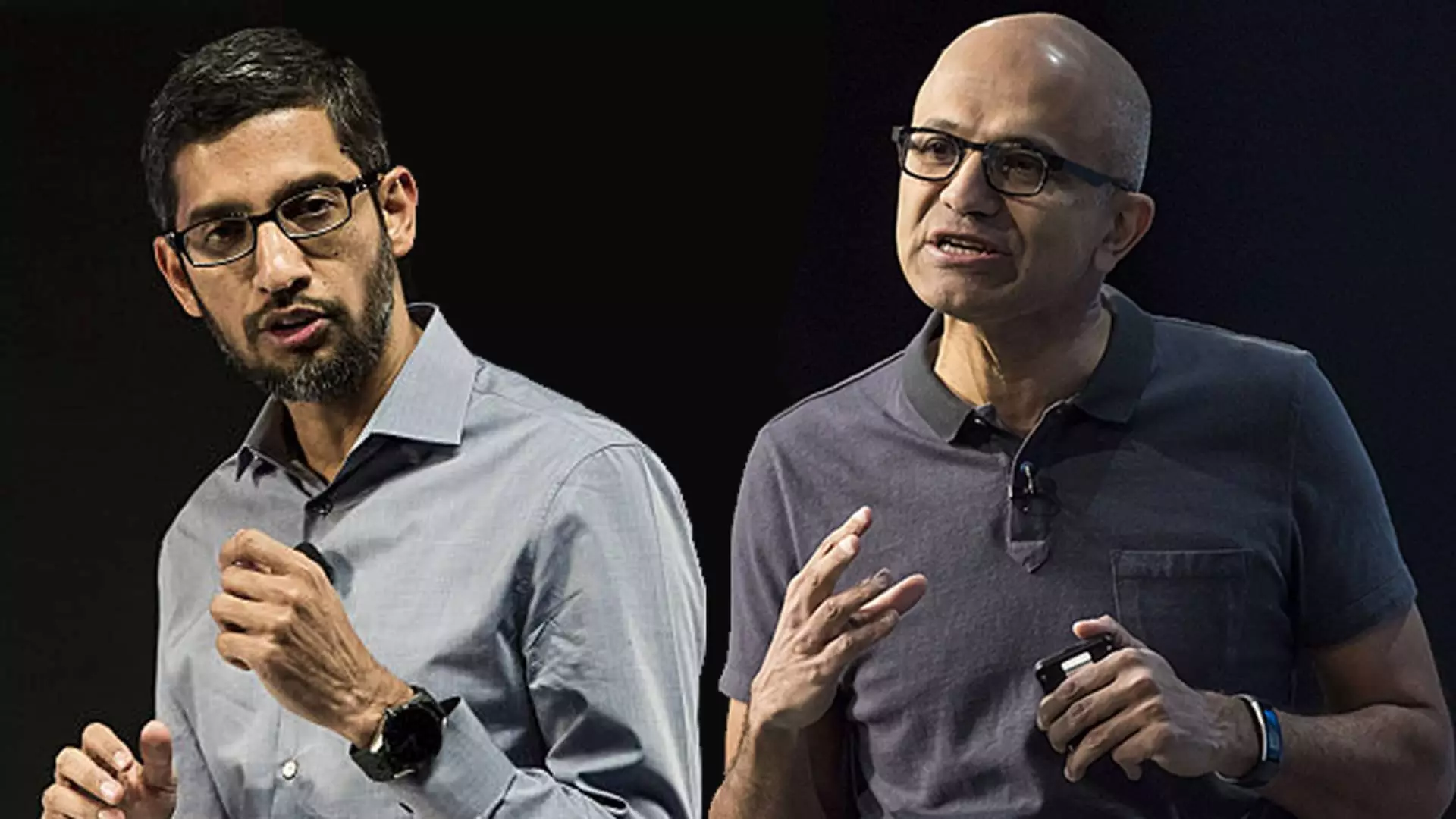In a surprising move, Microsoft has stepped into the public arena to make serious accusations against its long-time adversary, Google. This overt confrontation highlights not just the competitive tension between the two technology giants but also the increasing stakes involved in the cloud services and software industry. On Monday, Rima Alaily, Microsoft’s corporate lawyer, shared concerns via a blog post regarding what she characterized as “shadow campaigns” orchestrated by Google in Europe. Such public discourse signals a shift from behind-the-scenes strategies to direct assertions and counterclaims in the tech industry.
Google’s alleged tactics revolve around building a coalition of European cloud companies, which Microsoft claims aims to discredit their operations in front of regulatory bodies and the public. This maneuvering reflects a calculated effort by Google to influence perceptions about its competitors while attempting to divert scrutiny from its own regulatory challenges. As antitrust cases mount in both Europe and the U.S., this rivalry appears to be intensifying, with each company gearing up to defend its market position while trying to challenge the other’s credibility.
Analyzing Microsoft’s Claims
Alaily’s blog post specifically mentions the establishment of a group called the Open Cloud Coalition, purportedly linked to Google through the DGA Group, a lobbying firm. This coalition is presented as a vehicle to promote a fair cloud service market; however, Microsoft argues that its true intent is to serve Google’s interests by undermining Microsoft’s business practices in Europe. The situation raises critical questions about the ethics of such coalitions, particularly in how they can be co-opted by larger companies to manipulate market narratives.
The existence of these coalitions poses a significant ethical dilemma: when does advocacy for competition become an instrument of manipulation? While ostensibly promoting openness in cloud services, these restructured alliances can diminish public trust as they blur lines between genuine advocacy and corporate strategy. Microsoft’s direct engagement with this issue allows them to position themselves as a targeted victim of clandestine tactics, possibly resonating with regulators and consumers wary of monopolistic behaviors.
The Broader Implications for the Tech Industry
The clash between Microsoft and Google is emblematic of broader issues within the tech landscape. As companies compete fiercely for market dominance in cloud computing—a sector poised for significant growth—strategy takes on new dimensions. With Google’s cloud division striving to expand its foothold, especially amidst increasing scrutiny for its market practices, accusations of improper conduct impact both public perception and regulatory attitudes.
Microsoft’s allegations further complicate this narrative, raising the stakes for Google, particularly considering its current antitrust trial led by the U.S. Justice Department. These ongoing legal matters create an environment where corporate actions are under constant surveillance, and the implications of any lobbying efforts or campaigns could have lasting repercussions for both companies involved. The public accusation highlights an escalating tit-for-tat mentality, where legal battles and public relations efforts intertwine as both sides jockey for advantage.
Microsoft’s assertion of Google’s alleged “shadow campaigns” underscores a more profound competitive rivalry that could reshape the landscape of the cloud services and the software industry at large. The stakes are exceptionally high, and as these tech titans continue to slug it out in public, we can expect the focus on ethical practices and regulatory compliance to intensify.
As the conflict unfolds, it will be interesting to observe the responses from regulatory bodies and how public sentiment evolves around these two companies. The evolution of this situation illustrates a critical juncture in technology where competition, ethics, and influence are increasingly intertwined, creating a volatile atmosphere that will undoubtedly have consequences for both Microsoft and Google, as well as the broader market dynamics they operate within.

Leave a Reply